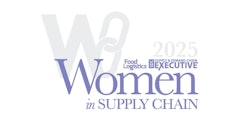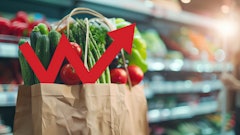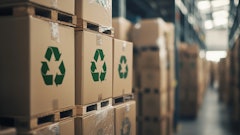
Glad tidings often follow trials. Many auspicious negotiations nestle an ultimatum. Great rewards are inextricable from great risks and environmental action comes with legal obligations.
The world has welcomed 2023 with enormous anticipation as demands press for concerted climate action. A great portion of which involves the complex world of packaging. From sweeping bans to labelling specifications, the European packaging field is transforming rapidly as more and more governments are recognizing the long-term benefits of extended producer responsibility (EPR). It’s 2023 and a dizzying number of laws are already in force.
Sustainability laws in Andorra
Several countries have taken their turn in transforming EU directives on single-use plastics into domestic laws. On Jan. 1 Andorra banned such products as plastic straws and polystyrene containers to promote reusable alternatives. France’s Environment Code entered a new phase as throwaway boxes and single-use cutlery are now banned from restaurants and cafes. Joining in the code’s various measures to eliminate nationwide use of single-use products since 2021.
Sustainability laws in Italy
On Jan. 5, Italy initiated the first stage of its EPR requirement for manufacturers and importers of designated single-use products. Producers and distributors of disposable plastic tobacco filters are now obligated to implement a producer responsibility scheme and undertake relevant awareness campaigns. A similar requirement has been enforced in Cyprus as part of an amendment to the country’s Law on Waste. Transposing EU into domestic law, Poland amended its act on the management of packaging and packaging waste to charge producers with a packaging fee and require each single-use plastic product to bear a visible and indelible mark.
Italy amended its 2020 decree on labelling to obligate producers of all types of packaging to indicate the relevant material through an alphanumeric code. As per the Netherlands’ Packaging Management Decree, manufacturers and importers of fast food containers, plastic and composite beverage containers, cups, lightweight carrier bags, and pouches and wrappers made of flexible material containing foodstuffs for immediate consumption are obligated to cover in addition to EPR fees, the costs of raising consumer awareness around littering incurred by single-use packaging.
Sustainability laws in Spain
Yet more laws and amendments are in place. Spain’s Plastic Tax is now in force, and 0.45 euros are due on any non-recycled plastic contained in non-reusable packaging, semi-finished plastic products, and products containing plastic intended to allow the closure, marketing or presentation of non-reusable containers. VerpackG mandates that retailers, restaurants and distributors of “to-go” food delivery offering plastic food packaging and beverage cups inform consumers of reusable options for takeaway meals and drinks that can replace single-use packaging. Luxembourg’s amendment to the Law on Waste requires restaurants to serve meals and drinks consumed on-site in reusable containers and with reusable cutlery.
Sustainability laws in Greece
Greece extended the scope of its existing EPR scheme to additional disposable plastic products, such as beverage cups and food containers, as well as requiring producers to participate in or organize a Collective Alternative Management System for packaging waste. Hungary prohibits all beverage cups from being placed on the market and single-use plastic fast food containers from being offered to consumers free of charge.
In addition to these major changes, more laws have been enforced with the advent of 2023 and further legislation is expected to roll in within the next weeks and months. Although this legal onrush is an exciting sign of a timely rise in environmental awareness across Europe, making sense of the logistics behind how obligated companies are from now on expected to design and distribute their products on a day-to-day basis can be daunting.



















